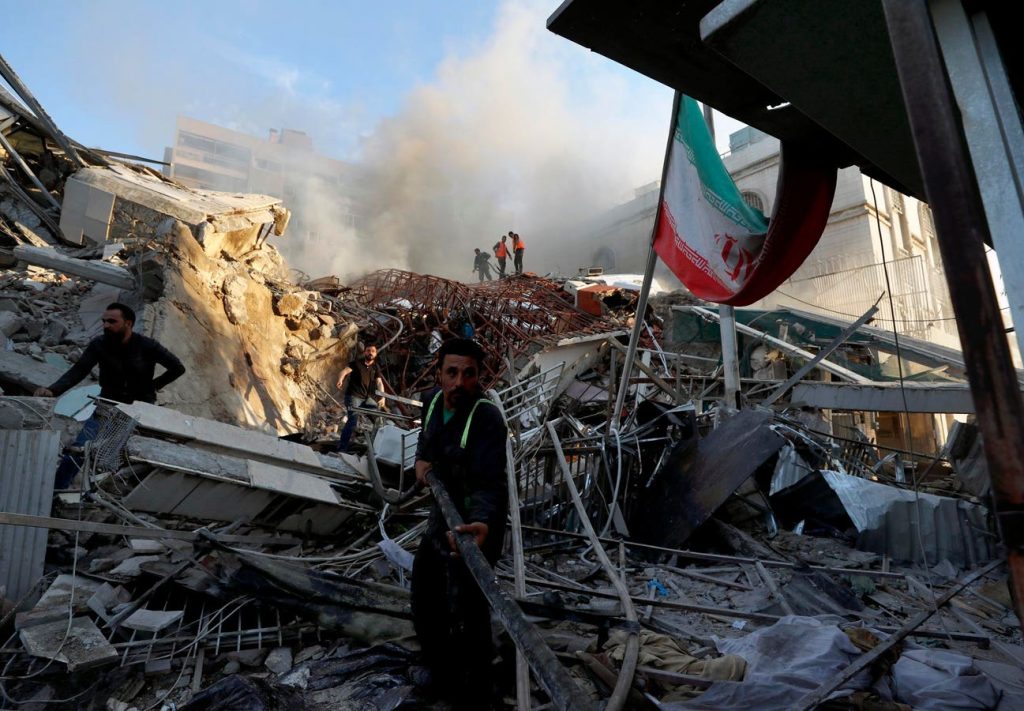Oil futures surged to $92 per barrel on Friday as tensions between Israel and Iran escalated, prompting fears of potential conflict. Israeli Prime Minister Benjamin Netanyahu met with top officials and instructed them to prepare for a possible attack by Tehran. The price spike follows already elevated levels, with Brent futures hovering around a six-month high.
The increase in oil prices comes as global markets anticipate a potential retaliation from Iran for an alleged Israeli air strike in Damascus, Syria on April 1. The attack resulted in the death of 13 individuals, including two Iranian generals, and destroyed part of Iran’s consulate in Syria. Among the casualties was Brigadier General Mohammad Reza Zahedi, a senior commander of the Quds Force in Syria and Lebanon, who was believed to have ties to Hamas.
Reports from CBS News indicated that Iran may retaliate with over 100 drones, cruise and ballistic missiles, prompting the U.S. to issue a travel warning for Israel and limiting the movement of diplomatic staff. Other countries, such as the U.K., France, Australia, and India, have also issued warnings to their citizens and diplomatic personnel. Lufthansa has suspended flights to Tehran, and various airlines are avoiding Iranian airspace.
Iran’s Supreme Leader Ali Khamenei has vowed that Israel “must be punished and it shall be” for the airstrike in Syria, while Israeli Prime Minister Netanyahu’s office asserted that Israel is prepared defensively and offensively to meet any security needs. Efforts to dissuade Iran from attacking Israel are underway, with the U.S. engaging with foreign ministers from countries like China, Qatar, and Saudi Arabia to intervene diplomatically.
The recent tensions stem from an attack by Iran-backed Hamas in the Gaza Strip in October 2023, which resulted in the deaths of nearly 1,200 people and the taking of hostages. Israel retaliated, leading to a significant number of casualties in Gaza. The conflict has also seen exchanges of fire across Israel’s border with Hezbollah in Lebanon and attacks on international shipping in the Red Sea by Houthi rebels in Yemen, prompting missile strikes from the U.S. and U.K.
The escalating situation in the Middle East has raised concerns about the potential for a wider regional conflict. Diplomatic efforts to prevent further escalation are being made, as countries urge Iran to refrain from attacking Israel. The possibility of a broader war in the Middle East has prompted a response from various world powers, with fears of further military actions and disruptions to global oil supplies. The future remains uncertain as tensions between Israel and Iran continue to mount.


